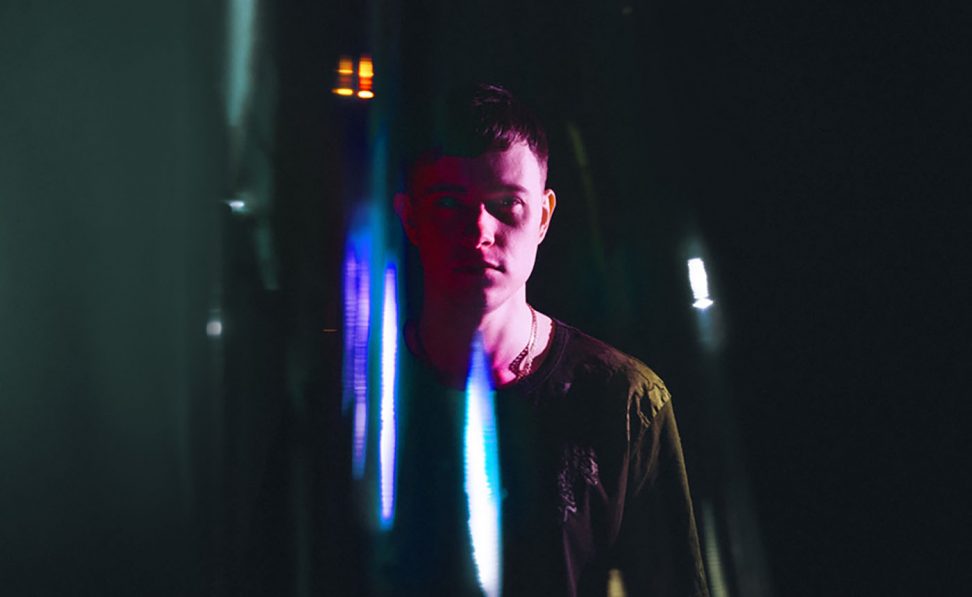Rustie

Origin: None
Glasgow’s Russell Whyte is behind some of the most joyous, hyperactive, and truly original club music of recent years. As electronic alchemist Rustie, he harnesses the energy and euphoria of hyphy hip-hop and trance, spikes it with speaker-mangling bass and flashes of techno and channels this all into intense dancefloor detonators, a sound he honed playing at nights thrown by local label collectives Numbers and LuckyMe.
Rustie distilled this all to critical acclaim for his 2011 debut album on Warp, ‘Glass Swords’, which was celebrated for its meditation on everything from grime and hip-hop to sci-fi computer games and even prog rock. It won the Guardian’s prestigious First Album award the following year, which praised Rustie’s ability to imbue shotgun-blast-to-the-face beats with “real emotion” – musical warmth that belies his stoic and deadly shy nature in person. “A big part of music for me is to say things that you can’t say with words,” he admits. “I’m so shit with words that this is one of the only ways I can get anything out.”
Consequently, he has created his own electronic vocabulary, one that ducks and dives and swoops, never sticking faithfully to just one genre but pulling you along breathlessly with it. So it’s fitting that he has called his new and second album ‘Green Language’ after the multi-faceted term and nickname for ‘the language of the birds’. Green language has different meanings in Norse medieval literature, Renaissance magic and ancient mythology, and many considered it the key to perfect knowledge. For Rustie, it echoes his attitude towards music, too. “It’s a language that’s non-dualistic, that speaks to you directly to your emotions without the mind interfering with the message,” he explains. “And music is like that for me.”
As soon as album opener ‘Workship’s glassy synth shards start to oscillate, like a wind chime splintering into a thousand pieces under a celestial sunbeam, it’s clear that ‘Green Language’ has that immediate emotional pull. His trademark neon-lit arpeggios, stuttering swagger and juggernaut bass bangers still feature but they’re bookended by a number of expansive, expressive compositions that unspool with wave after wave of sparkling drone, inspired by the post-rock and shoegaze soundscapes of bands like My Bloody Valentine and Godspeed! You Black Emperor. There’s the dense, driving centerpiece ‘Tempest’, in which heavily distorted guitar tremolos through a glittering tapestry of rain and jungle textures. And ‘Paradise Stone’ with its shamanic kalimba melody, which darts and flickers like a flame around a desert cave at night. It’s a more experimental side Rustie at work, as if channeling some unknown mystical spirit.
It’s also a side that’s more personal and, Rustie says so himself, mature. ‘Green Language’ signals the transition from London back to Glasgow, as well as a return to his early love of grime, trance and Dirty South hip-hop, to name just a few. There are the instrumental club bangers like ‘Attak’ and ‘Velcro’ but they’re more finely tuned and carefully constructed songs seep in alongside them. Take ‘Dream On’, for example, which features honeyed vocals from Washington DC singer Muhsinah – it could be a ‘Sittin’ Up In My Room’-era Brandy, were it not for Rustie’s fizzing rushes of drums underneath. Or there’s Lost featuring his Numbers cohort Redinho, a hyper-synthetic ode to the 80s electro love ballad and what Rustie says is “the closest thing I’ve written to a traditional pop song.”
A raft of other guests feature, too, though not the vocalists of the moment that you might expect. Instead, Rustie has reached out to those he has a connection with, such as Danny Brown, who he worked with on Brown’s 2013 album, ‘Old’, and who lends a stand-out party-hyping vocal to buoyant trap-rave track ‘Attak’. Face Vega from dystopian hip-hop duo Gorgeous Children, meanwhile, unleashes his sleazy rhymes on efflorescent downtempo jam He Hate Me. And Veteran emcee D Double E, who Rustie has been a fan of since the early 2000s, flows over majestic grime track ‘Up Down’ and its chirruping birdsong. It’s the kind of playfulness you’d expect, perhaps, from Rustie, whose early tracks (on MySpace in 2009) included one called ‘Inside Pikachu’s C*nt’.
Even despite these wide-ranging reference points, though, Rustie is egoless when it comes to explaining what he’s trying to specifically express with his beats. He still wants to reflect the euphoria he felt during the trance nights he raved at in his twenties, and the joy he gets from making music. But he’d like his music to be personal to others that listen to it, too. “I want people to get their own message from the music and for it to speak to them in their own individual way,” he finalises. Green or not, that’s a language that everyone understands.

